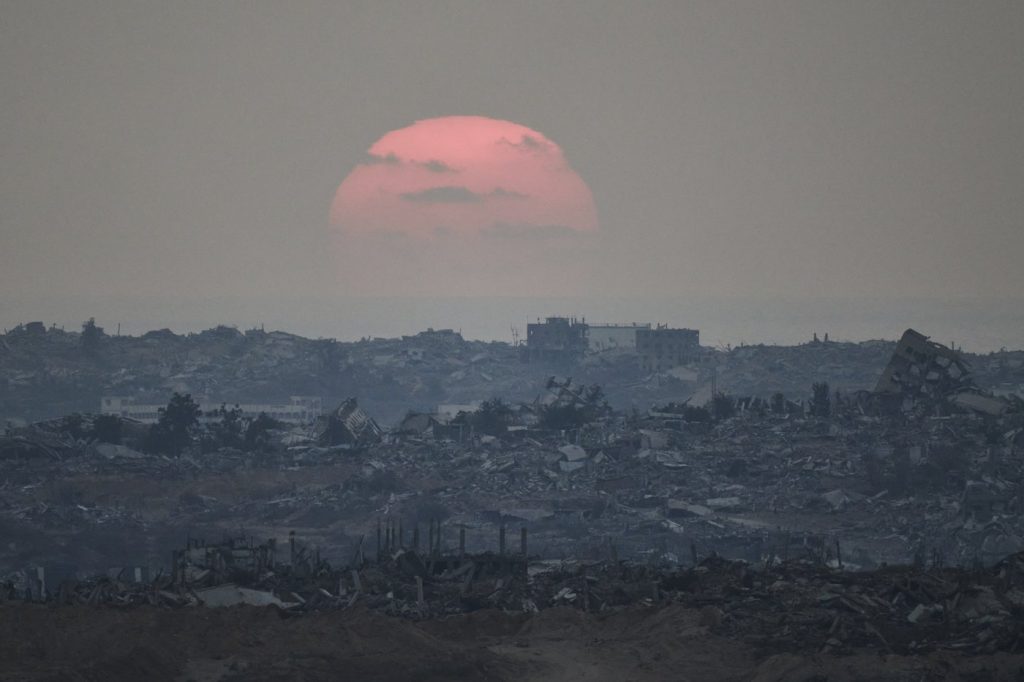Israeli Prime Minister Benjamin Netanyahu has announced plans to extend military operations beyond Gaza City, targeting areas still not under Israeli control, where a significant number of Gaza's 2 million residents have sought refuge amid a deteriorating humanitarian crisis. The ongoing conflict, which escalated after Hamas's attack on October 7, 2023, has led to severe living conditions in Gaza, with reports indicating the territory is nearing famine.
Netanyahu's mobilization of forces is expected to span several weeks, during which Israel aims to pressure Hamas into releasing more hostages or potentially surrendering, while escalating military activities are anticipated to cause further devastation in the affected areas. Approximately 75% of Gaza has already been affected by the conflict, leading to widespread destruction and raising concerns about increased displacement and interruptions in humanitarian aid efforts.
The announcement of a broader offensive has drawn mixed reactions within Israel. Families of the remaining hostages express fears that escalated military operations could jeopardize their loved ones' safety, while former senior security officials argue there may be little strategic benefit from renewed heavy fighting. Recently, Israel has intensified its focus on Gaza City, where prior airstrikes and ground raids have occurred.
Netanyahu indicated that operations would expand to the central refugee camps of Nuseirat and Bureij, areas historically significant since the 1948 war surrounding Israel's establishment. Acknowledging these camps as Hamas strongholds, Netanyahu implied the possibility of ground operations as current actions have primarily focused on airstrikes. The central city of Deir al-Balah also remains a key focus, as these are among the last locations where hostages might be held.
According to an Israeli official who remained anonymous, the operation's commencement will not be immediate and will require time for significant force mobilization. The plans are reportedly designed to pressure various stakeholders, including Hamas, while limiting immediate public disclosure.
As casualties mount and the humanitarian situation worsens, Netanyahu stated that civilians would be allowed to flee to "designated safe zones,” where they would receive food, water, and medical care. However, the designated area of Muwasi has faced challenges, such as overcrowding and inadequate supplies, leading to concerns about its effectiveness as a safe haven. The area remains under threat from airstrikes targeting alleged militants.
In recent weeks, Israel's Defense Minister floated the controversial idea of relocating Gaza's population to a "humanitarian city" in the still largely uninhabited southern area of Rafah, which is close to the Egyptian border. This suggestion, along with Netanyahu's intentions for voluntary emigration of Gaza's residents to other countries, has been criticized as potentially coercive and akin to forced migration by the international community.
Netanyahu has stated that the war could conclude if Hamas disarms, relinquishes control, and releases the remaining hostages—around 50, approximately 20 of whom are believed to still be alive. His claims suggest that Israel would maintain security oversight over Gaza, while possible assistance from friendly Arab forces to administer the region remains ambiguous, as current viable options appear lacking.
On the other hand, Hamas insists on releasing the hostages in exchange for a lasting ceasefire and an Israeli withdrawal, maintaining that relinquishing its weapons is unfeasible as long as Israel occupies territory the Palestinians seek for a future state. Reports indicate that Hamas’s remaining hostages are viewed as their primary bargaining chip, given Israel's ongoing military operations and punitive measures against Gaza, which have included a blockade that has exacerbated living conditions.
As conflict proceeds, the toll has considerably escalated, with Palestinian health authorities reporting approximately 61,500 deaths since the onset of Israeli military actions, a number disputed by Israel. The situation remains precarious, prompting urgent calls for negotiations to address the humanitarian crisis and the conditions surrounding hostages, as international mediation efforts face significant challenges moving forward.












